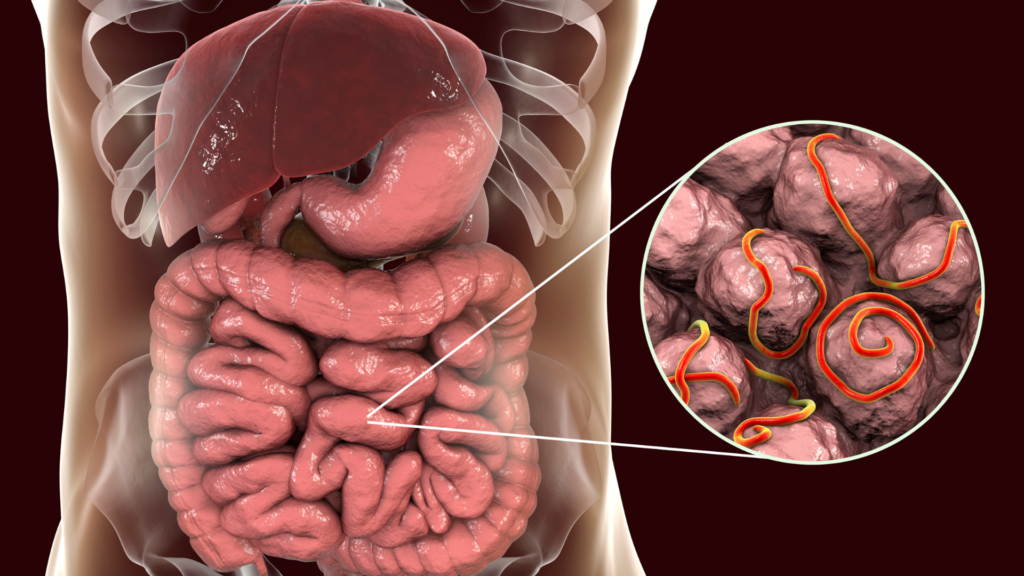
Parasites – the mere mention of these insidious organisms can send shivers down our spines. While they may be small in size, their impact on human health can be significant and sometimes even life-threatening. From intestinal worms to microscopic protozoa, parasites come in various forms, each presenting unique challenges to our well-being. In this blog, we delve into the world of parasites, exploring how they affect people and what steps can be taken to mitigate their risks.
The Silent Invaders: How Parasites Affect People
Parasites are masters of stealth, often infiltrating our bodies without detection. Once inside, they can wreak havoc on our health, causing a wide range of symptoms and complications. Intestinal parasites, for example, can lead to digestive issues such as diarrhea, abdominal pain, and nausea. In severe cases, they may even cause malnutrition and weight loss as they compete with the host for nutrients.
Protozoan parasites, on the other hand, can target various organs and systems within the body. For instance, Giardia and Cryptosporidium, two common protozoa, can cause gastrointestinal symptoms including diarrhea and vomiting. Meanwhile, bloodborne parasites like Plasmodium species, which cause malaria, can lead to fever, chills, and flu-like symptoms, and in severe cases, may result in organ failure and death if left untreated.
Modes of Transmission: How Parasites Spread
Understanding how parasites are transmitted is crucial for preventing infections. These cunning creatures employ various strategies to enter our bodies, including:
- Ingestion: Consuming contaminated food or water is one of the most common ways people acquire parasitic infections. Improperly cooked meat, unwashed produce, and untreated water sources can all harbor parasites, putting unsuspecting individuals at risk.
- Direct Contact: Parasites can also be transmitted through direct contact with infected individuals or animals. This can occur through activities like petting infected animals, sharing personal items, or engaging in sexual contact with an infected partner.
- Vector-borne Transmission: Insects such as mosquitoes, ticks, and flies serve as vectors for many parasitic diseases. When these insects bite humans, they can transmit parasites into the bloodstream, initiating infections like malaria, Lyme disease, and leishmaniasis.
- Environmental Exposure: Certain parasites thrive in specific environmental conditions, such as soil or water. Swimming in contaminated water, walking barefoot in areas where parasites are present, or inhaling airborne parasite cysts are all potential routes of exposure.
Common Parasites: Recognizing the Enemy
Parasites come in a variety of shapes and sizes, each with its own set of characteristics and associated health risks. Some common parasites that people should be aware of include:
- Intestinal Worms: Roundworms, tapeworms, and hookworms are among the most prevalent intestinal parasites worldwide. These worms can cause a range of symptoms, including abdominal pain, diarrhea, and anemia.
- Protozoa: Protozoan parasites like Giardia, Cryptosporidium, and Toxoplasma gondii can infect the digestive tract, leading to gastrointestinal symptoms and, in severe cases, systemic illness.
- Bloodborne Parasites: Malaria, caused by Plasmodium parasites transmitted through the bite of infected mosquitoes, remains a significant global health concern, particularly in tropical and subtropical regions.
Prevention is Key: Tips for Reducing the Risk of Parasitic Infections
While the thought of parasites may be unsettling, there are steps we can take to protect ourselves and our loved ones from these hidden threats:
- Practice Good Hygiene: Wash hands thoroughly with soap and water before eating or handling food, and after using the restroom or changing diapers. Teach children the importance of handwashing to prevent the spread of parasites and other pathogens.
- Cook Food Properly: Ensure that meat, fish, and poultry are cooked to the appropriate internal temperature to kill any parasites present. Avoid consuming raw or undercooked foods, especially when traveling to regions where parasitic infections are prevalent.
- Drink Safe Water: Use only clean, safe water from a trusted source for drinking, cooking, and brushing teeth. If unsure about the water quality, boil it or use water purification methods such as filtration or chemical disinfection.
- Protect Against Insect Bites: When traveling to areas where vector-borne diseases are endemic, use insect repellents containing DEET or picaridin, wear long-sleeved shirts and pants, and sleep under insecticide-treated bed nets to reduce the risk of mosquito bites.
- Seek Medical Attention: If you suspect you have been exposed to parasites or are experiencing symptoms of infection, seek medical attention promptly. Early diagnosis and treatment are essential for preventing complications and controlling the spread of parasitic diseases.
Conclusion
Parasites may be small, but their impact on human health should not be underestimated. By understanding how parasites affect people and taking proactive measures to prevent infections, we can minimize the risk of falling prey to these hidden invaders. From practicing good hygiene to avoiding exposure to contaminated food and water, each of us plays a vital role in safeguarding our health against the threat of parasites. Together, we can combat these cunning creatures and ensure a healthier, parasite-free future for all.



